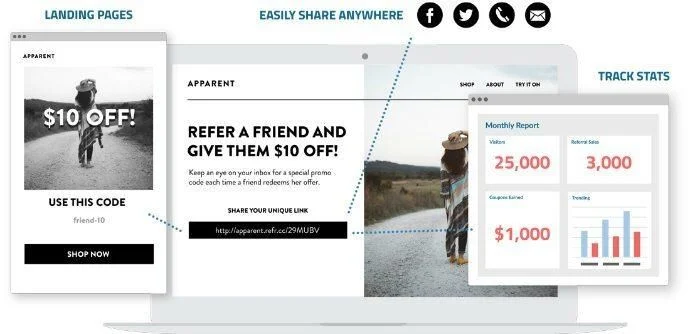
The travel industry is highly competitive, with countless businesses vying for the attention of consumers. To stand out from the competition, travel companies need to employ effective growth hacking strategies. Growth hacking can help businesses of all sizes to grow in a sustainable and scalable way, by utilizing creative and cost-effective methods to reach a wider audience.In this article, we’ll explore 45 of the top growth hacking strategies for travel businesses. From building a strong online presence to creating engaging content, implementing effective email marketing to leveraging social media platforms, we’ll cover everything you need to know to start growing your travel business today.
Understanding Growth Hacking in the Travel Industry
Growth hacking is a term that’s been thrown around a lot in recent years. But what does it actually mean, and how can it be applied to the travel industry?
What is Growth Hacking?
Growth hacking is a data-driven approach to marketing that focuses on rapid experimentation and iteration. It’s all about finding creative, cost-effective, and often unconventional ways to grow a business.
In the context of the travel industry, growth hacking involves identifying the channels and tactics that are most effective for reaching and engaging with potential customers. This might involve leveraging social media platforms, building an email list, creating engaging content, or utilizing influencer marketing, among other strategies.
Why is Growth Hacking Important for Travel Businesses?
Growth hacking is particularly important for travel businesses because of the highly competitive nature of the industry. By identifying and implementing effective growth hacking strategies, travel companies can increase their visibility, reach more potential customers, and ultimately drive more bookings and revenue.
Building a Strong Online Presence
A strong online presence is essential for any modern travel business. Here’s how you can optimize your website and leverage social media platforms to attract and engage with potential customers:
Optimizing Your Website for Conversions
Your website is the face of your travel business online. It’s where potential customers will go to learn more about your offerings, and ultimately make a booking decision. To optimize your website for conversions, consider implementing the following strategies:
- Ensure that your website is mobile-responsive, as more and more people are using their smartphones to research and book travel
- Use clear and compelling calls-to-action (CTAs) throughout your site to guide visitors towards making a booking decision
- Make your website easy to navigate, with a clear hierarchy of information and intuitive menu navigation
- Provide relevant and informative content that addresses the needs and pain points of your target customers
Leveraging Social Media Platforms
Social media platforms can be a powerful tool for travel businesses to reach and engage with potential customers. Here are a few tips for doing so effectively:
- Identify the social media platforms that your target customers are most active on, and focus your efforts there
- Create engaging and visually appealing content that is designed to be shared and reshared by your followers
- Use social media to promote special deals, discounts, and offers, as well as to provide valuable travel tips and advice
- Engage with your followers regularly, responding to comments and messages in a timely and personable manner
Utilizing Influencer Marketing
Influencer marketing is a growing trend in the travel industry, as it allows businesses to tap into the sizable followings of popular social media users and bloggers. To make the most of influencer marketing, consider the following tips:

- Focus on building relationships with influencers who are aligned with your brand and target audience
- Create compelling and visually appealing content that showcases your offerings and resonates with your target audience
- Provide influencers with complimentary trips or experiences in exchange for social media posts or blog articles about their experience
- Track the success of your influencer marketing campaigns using analytics tools to determine ROI and adjust your strategy accordingly
Creating Engaging Content
One of the most effective growth hacking strategies for travel businesses is to create engaging and shareable content that resonates with your target audience. Here are a few tips for doing so:
Crafting Compelling Blog Posts
Blog posts can be a powerful tool for attracting and engaging potential customers. To create compelling blog posts, consider the following tips:
- Address the key pain points and concerns of your target customers in your blog posts
- Use engaging headlines and subheadings to draw readers into your content
- Include high-quality visuals, such as photos and videos, to make your content more engaging and shareable
- Provide actionable travel tips and advice that are relevant to your target audience
Producing Shareable Videos
Video content is becoming increasingly popular in the travel industry, as it allows businesses to showcase their offerings in a more dynamic and engaging way. Here are a few tips for producing shareable videos:
- Focus on telling a compelling story that resonates with your target audience
- Keep your videos short and to the point, with a clear call- to-action at the end
- Include captions and subtitles for viewers who are watching with the sound off
- Ensure that your videos are optimized for mobile viewing, as the majority of people are watching videos on their smartphones
Developing Informative Infographics
Infographics can be a great way to present complex information in a visually engaging and easily digestible format. To create compelling infographics, consider the following tips:
- Focus on presenting data and statistics that are relevant and informative to your target audience
- Use high-quality visuals and design elements to make your infographics more engaging and shareable
- Keep your infographics simple and easy to understand, with a clear hierarchy of information
- Promote your infographics on social media and other channels to increase their visibility and reach

Implementing Effective Email Marketing
Email marketing is a tried-and-true growth hacking strategy that can help travel businesses to reach and engage with potential customers in a cost-effective way. Here are a few tips for doing so effectively:
Building a High-Quality Email List
The success of your email marketing campaigns depends on the quality of your email list. To build a high-quality email list, consider the following strategies:
- Make it easy for people to subscribe to your email list, with prominent sign-up forms on your website and social media channels
- Focus on attracting subscribers who are genuinely interested in your offerings, rather than simply trying to accumulate a large number of contacts
- Regularly clean your email list to remove inactive subscribers or those who have marked your emails as spam
- Segment your email list based on factors such as location, interests, and purchasing habits, to deliver targeted and personalized campaigns
Crafting Attention-Grabbing Subject Lines
The subject line of your emails is the first thing that recipients will see, so it’s essential to make it attention-grabbing and compelling. Here are a few tips for crafting effective subject lines:
- Personalize your subject lines with the recipient’s name or other relevant information
- Focus on addressing the recipient’s pain points or offering a solution to a problem they may be facing
- Use action-oriented language and urgency to encourage recipients to open your emails
- Keep your subject lines short and to the point, ideally under 50 characters
Personalizing Your Email Campaigns
Personalization is key to effective email marketing. By delivering targeted and personalized campaigns, you can increase engagement and conversions. Consider the following tips for personalizing your email campaigns:
- Use the recipient’s name and other relevant information in your emails
- Deliver targeted campaigns based on factors such as location, interests, and purchasing history
- Provide content that is personalized to the recipient’s preferences and needs
- Include dynamic content that changes based on the recipient’s behavior or preferences
Conclusion
Growth hacking can be a powerful tool for travel businesses looking to grow in a sustainable and scalable way. By implementing the strategies outlined in this article, you can optimize your website, leverage social media platforms, create engaging content, and implement effective email marketing campaigns. With a little creativity and experimentation, you can find the growth hacking strategies that work best for your travel business and start driving more bookings and revenue today.
